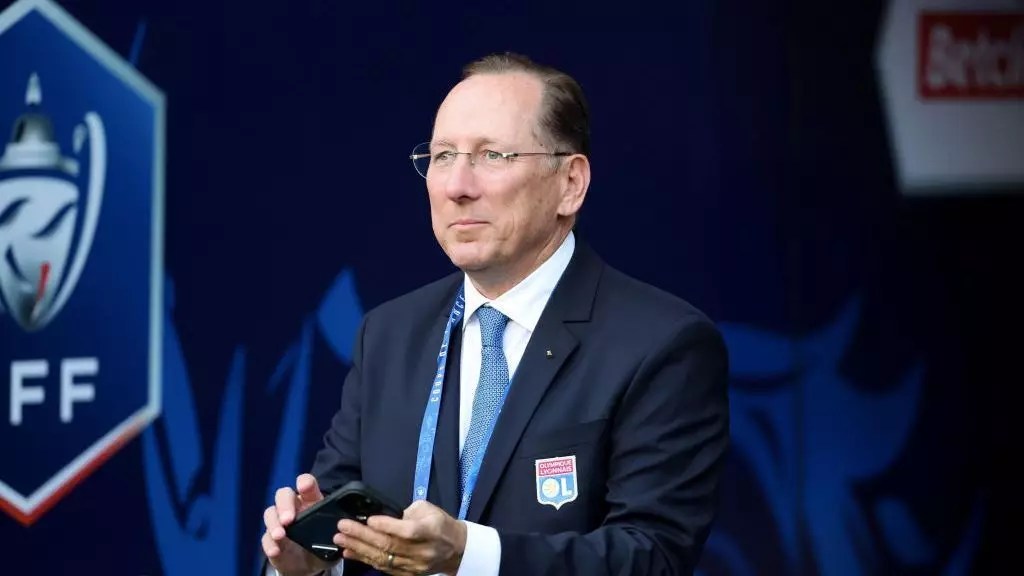In the world of football, rivalries extend beyond the pitch, seeping into the corporate echelons that underpin the sport. The latest chapter in this saga features John Textor, the American owner of Lyon, who has publicly lambasted Nasser Al Khelaifi, president of Paris Saint-Germain (PSG), for what he perceives as undue influence and conflict of interest within Ligue 1’s leadership. This bout of verbal sparring underscores an ongoing friction stemming from their divergent business philosophies and control of the French football narrative.
Textor’s grievances revolve around Al Khelaifi’s considerable sway over Ligue 1 and UEFA, which he regards as detrimental to competitive fairness. During his candid interview with RMC, Textor articulated his astonishment at the pervasive influence Al Khelaifi wields, suggesting that his dominion casts a shadow over both the league’s governance and the integrity of European football institutions. This concern is not merely rhetorical; it reflects a broader debate regarding the ethical standards of club ownership and governance in modern football.
Textor’s characterization of Vincent Labrune, Ligue 1’s president, as Al Khelaifi’s “lapdog” is not without significance. It paints a vivid picture of a compromised leadership structure where independent governance is compromised by conflicting interests. Given that Al Khelaifi leads BeIn Sport—a major broadcaster with vested interests in Ligue 1—Textor emphasizes the questionable dynamics at play when key decision-makers are entangled in such financial relationships. His remarks point to a fundamentally flawed scenario where one individual can potentially steer the ship to the detriment of others who occupy the same league space.
Textor’s vivid descriptions of a Ligue 1 meeting highlight the underlying power dynamics at play. Instead of an environment fostering open dialogue and healthy competition among club representatives, the meeting devolved into a forum dominated by Al Khelaifi’s overtures and intimidation tactics. Textor’s assertion that alternatives to the existing TV rights deal were met with bullying highlights his frustration with a system that he feels is more about subservience than collaboration.
The expectations placed on leaders like Labrune to not only represent their clubs but also foster an equitable atmosphere for discussion could not be clearer. By failing to assert his authority in the face of Al Khelaifi’s apparent overreach, Labrune risks alienating not just the clubs within Ligue 1, but also the league’s global perception. Textor’s comments, laden with a mix of indignation and incredulity, serve as a rallying call for change—a demand for greater accountability in how football is managed.
In the immediate aftermath of Textor’s comments, PSG released a statement that sought to dismiss his perspective, labeling his approach as rude and dismissive. They articulated disappointment over what they characterized as a lack of class from Textor, implying that perhaps the American owner lacks an understanding of the nuances of French football culture. This defensiveness hints at a recognition of the vulnerability of their position; if the public narrative begins to sway against them, their royal status within French football could be at risk.
The incident underscores a crucial aspect of modern football: the intertwining nature of personal branding, institutional reputation, and collective identity within the sport. As Al Khelaifi and his camp defend their status, Textor contemplates how to recalibrate his country’s narrative from a position of perceived weakness to one of competitive strength.
As the football world watches closely, the outcome of this feud may have substantial implications for Ligue 1’s future. The balance of power between clubs, the clarity of governance structures, and the ethical challenges surrounding ownership and influence will continue to be pivotal. How Textor and Al Khelaifi navigate their differences will not only define their respective clubs but also push the broader agenda of what it means to engage with the sport in an era of increasing commercialization and globalization.
Ultimately, the tussle between these two figures may be a symptom of a more significant issue within the sport, one that will need addressing. With the future of Ligue 1 hanging in the balance, the desire for transparent, fair, and competitive football governance is paramount for all stakeholders involved.


Leave a Reply